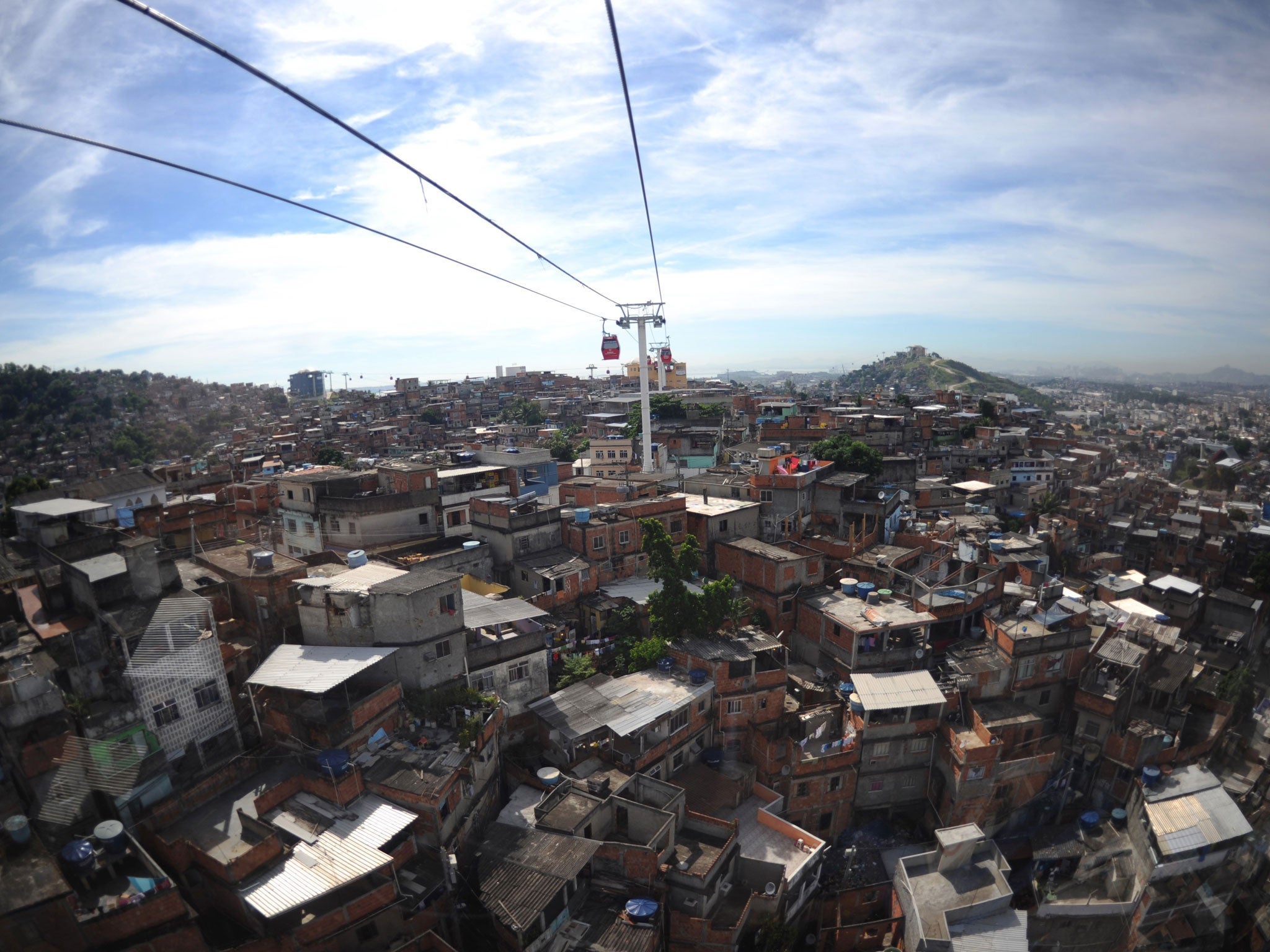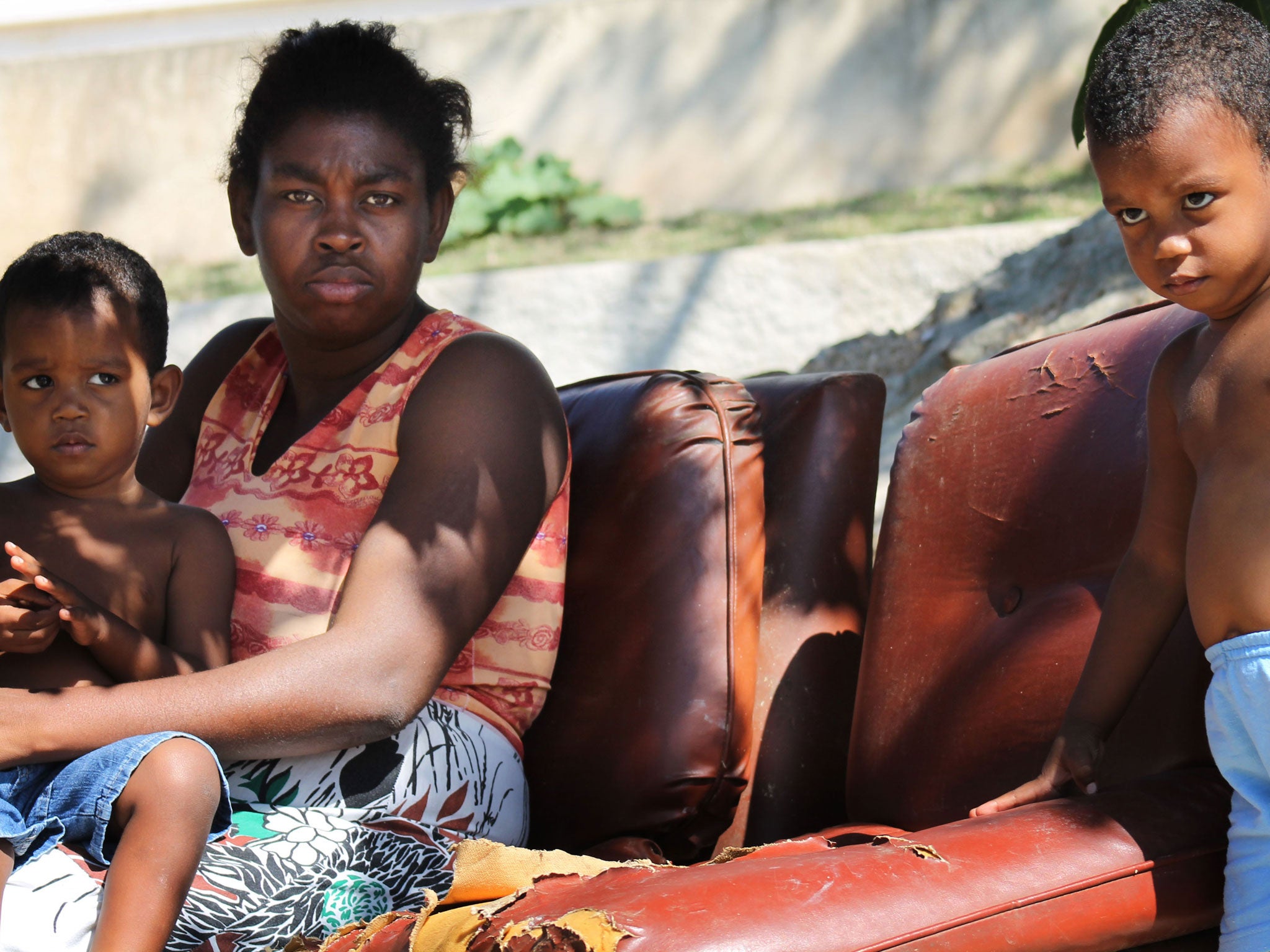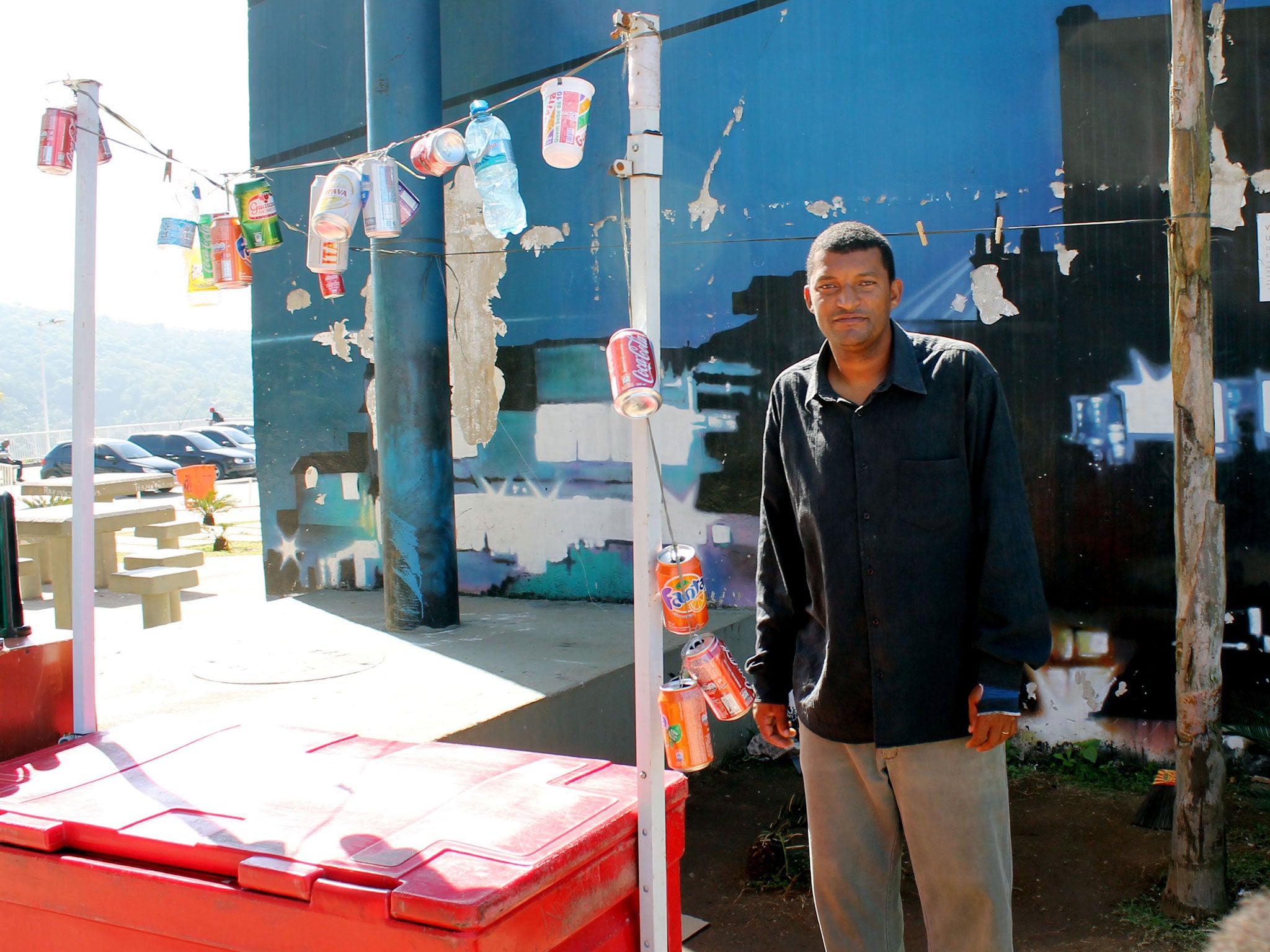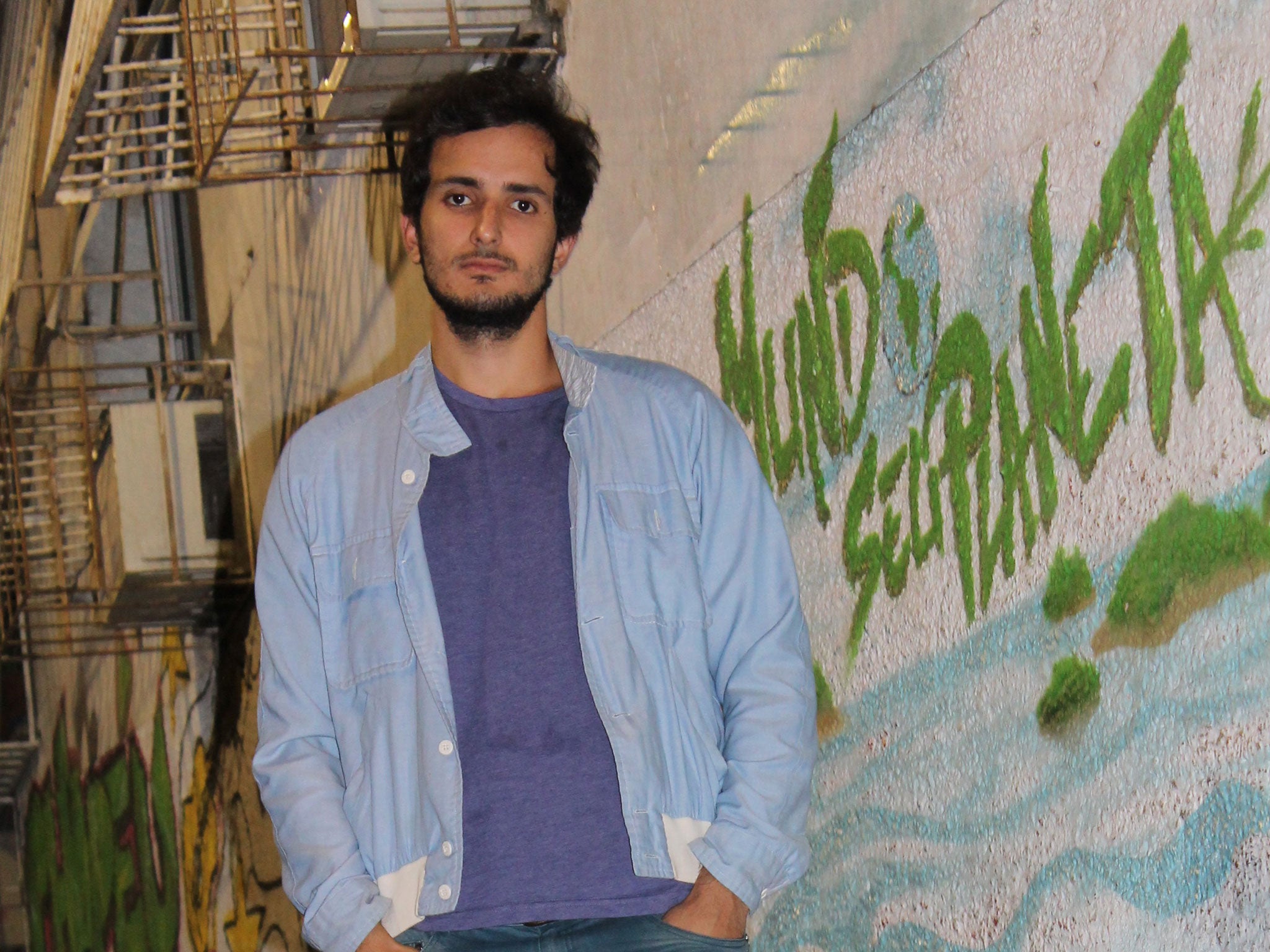Upward mobility comes to the favelas
A new cable car has helped transform a notorious shanty town into one of Rio de Janeiro’s more desirable residential areas. Janet Tappin Coelho meets the residents going up in the world

Your support helps us to tell the story
From reproductive rights to climate change to Big Tech, The Independent is on the ground when the story is developing. Whether it's investigating the financials of Elon Musk's pro-Trump PAC or producing our latest documentary, 'The A Word', which shines a light on the American women fighting for reproductive rights, we know how important it is to parse out the facts from the messaging.
At such a critical moment in US history, we need reporters on the ground. Your donation allows us to keep sending journalists to speak to both sides of the story.
The Independent is trusted by Americans across the entire political spectrum. And unlike many other quality news outlets, we choose not to lock Americans out of our reporting and analysis with paywalls. We believe quality journalism should be available to everyone, paid for by those who can afford it.
Your support makes all the difference.It was supposed to be the prime means of transport for the residents of Rio de Janeiro’s Alemao favela, enabling them to access all parts of the huge complex they call home; instead the newly installed cable-car system has become a massive tourist attraction.
With 152 gondolas covering just over two miles, the service climbs to the top of Alemao in 16 minutes, providing the most breathtaking vistas of the city. The system is now the second-most popular attraction after Cristo Redentor – the iconic Christ the Redeemer statue. Last year, more than six million people rode up the Alemao. Every day the gondolas carry 12,000 passengers, and on the weekend, tourists make up 60 per cent of the users.
In 2010, the Alemao complex, home to more than 300,000 residents and once the stronghold of one of the most dangerous criminal drug gangs in Rio, the Red Command, was liberated when armed security forces wrested control of the favela from the gangs of drug traffickers and installed a permanent police presence – Police Pacification Units. Around 140 favelas in the city of Rio have been pacified, but the state has more than 1,000 that still remain the domain of drug barons.
The pacification policy, coupled with Brazil’s developing economy, low unemployment, and government initiatives that have increased the standard of living, has led to an improvement in lifestyle of many slum dwellers.
Recent research by the Institute of Popular Data reveals that around 12 million people are living in Brazil’s favelas and are spending R$56.1bn (£15.8bn) per year – they are fast becoming a growth consumer market. Over the past 10 years, the number of favela residents with washing machines has doubled to more than 50 per cent. Nearly 90 per cent have mobile phones, and 40 per cent have computers. Around 45 per cent are regular internet users. Three years after the pacification of Alemao, The Independent went to find out whether the statistics are based on reality for the inhabitants.
Debroa Fernandes Ricardo

Debroa has never known life outside the Alemao complex, which comprises 15 different favelas, but that is beginning to change. The 31-year-old housewife has lived here her whole life. She lives right at the top of the hillside shanty town, a prime tourist location, and is married to Joao, 42, who works as a painter. They have twin boys aged two and two older children aged six and eight.
“I remember being so scared when the police entered Alemao to get rid of the drug commanders in 2010. They came with tanks and machine guns and there were hundreds of them. I always used to lie down on the floor with my older children when there were shoot-outs between the police and the drug gangs. This would normally happen when the police came to try to arrest one of the dealers or there was a fight between the gangs for control of the territory. This time, it was different – the police came to stay.
“I’ve never liked the police because some of them are as bad as the drug dealers, corrupt and brutal. But there are some good ones and at least by being here they have given us peace in our community, because now I have more freedom to move about how I please with my children without being worried about a war breaking out at any minute. I can send my oldest child out shopping and not feel frightened about whether she will return safely or not.
“We have also seen an improvement in our lives since my husband has found a regular job in the last year. We have been able to buy our first television and a washing machine, and he has a mobile phone. I’m hoping to get one soon. I can’t afford a computer yet for the children but I take the older ones to the technology centre once a week, where they can play with the computers and video games. I use the cable cars, which are free for one return trip every day. It only takes me 20 minutes to get down to the bottom of Alemao, whereas before I would never leave here because it was too far to walk all the way down. I never thought I’d see the day when tourists came to see our place. At weekends we have so many visitors who use the cable car that sometimes it can be a little bit overwhelming and I like to disappear into my house and close the door.”
Paulo Cesa Batista

The 40-year-old youth-football trainer regularly coaches more than 120 children under the age of 14. He also runs a drinks stall at the last cable-car stop in the open-air market at Palmeiras.
“For 14 years I was a crack addict and with the help of my family and friends, who paid for me to enter a drug-rehabilitation programme, I was able to break away from the habit, which destroyed my marriage and nearly took my life. Now, twice a day, three times a week, I give football training to the children in the community. This is something that I am passionate about. I don’t get paid and I don’t receive any help from the Rio city authority.
“I think the pacification programme and the intervention by the government has its good points, such as the cable car and the cinema at the bottom of the favela. But that’s about it. The Alemao complex is so big and I believe the government has been able to touch and change only 10 per cent of the lives here. You go and walk through the streets and you will see how much poverty still exists. The tourists don’t see this reality. It’s all superficial as far as many of us are concerned. We desperately need more education centres for adults because there is such a high level of illiteracy, and they need to be built right in the heart of the community so they are accessible to all. There are not enough schools for the children and not enough health centres in the area.
“People still live in miserable conditions in houses that are made of wood and corrugated iron. There is open sewage running outside their homes, chickens and pigs running around bringing diseases to children, rubbish that has accumulated for years, and no system in place for regular refuse collection.
Electricity gets cut off on a regular basis and some people still have to collect water from a central standpipe because they don’t have running water.
“I am lucky because I work and earn my living running my own drinks stall, and I can be quite busy. But a lot of us feel that the pacification strategy is only just to benefit the World Cup and the Olympics. There should have been social-improvement programmes that followed the pacification, but we are still waiting. And while we wait, the drug traffickers sneak back into our complex. Just last week, the police killed a drug dealer. It’s an ongoing fight which I think will never end.”
Eduardo Sa

One of the surprising consequences of the pacification process is the gentrification of the favelas. A growing number of foreigners and middle-class citizens are moving into the slum dwellings as the squeeze on available accommodation in Rio de Janeiro tightens in the run-up to World Cup games next year. Many who choose to set up home in the favelas discover a rich community spirit, amazing views from the hillside structures and disappointingly, high rental prices. The national minimum wage per month in Brazil is R$650 (£180).
Eduardo Sa, a 28-year-old economist, has been living in the Morro da Babilonia favela in Rio since December last year. He earns more than R$3,500 (£990) per month.
“I used to live along the beach front in Leme, a very middle- to upper-middle-class neighbourhood in Rio, when I first moved to the city in 2004. I was paying around R$1,000 (£280) a month in a flat share with three other people paying the same amount. This is the average rental price in Rio today.
“As part of my undergraduate studies I chose to do a thesis on the eating habits of people living in a favela. That’s how I got to know the people inside Babilonia and found out what it was really like living there. While I was doing my research the pacification process started in the favela and it dawned on me anyone could live a good life in these complexes. What encouraged me to move to Morro da Babilonia was the community spirit, which is so strong and supportive. I know my neighbours here; I didn’t know my neighbours in my exclusive beach-front flat.
“I’m renting a one-bedroom flat for the same price of my previous accommodation. It’s around the corner and up the hill from where I used to live. So I’m still near the beach and in an area I really love. But no matter where you live now, property prices are very high.
“It’s totally peaceful here. I have experienced no violence, shootings or burglaries. I’m now planning to start a community library with a friend who grew up in the favela, which means I will really be participating in the life and helping to energise the community.”
Join our commenting forum
Join thought-provoking conversations, follow other Independent readers and see their replies
Comments